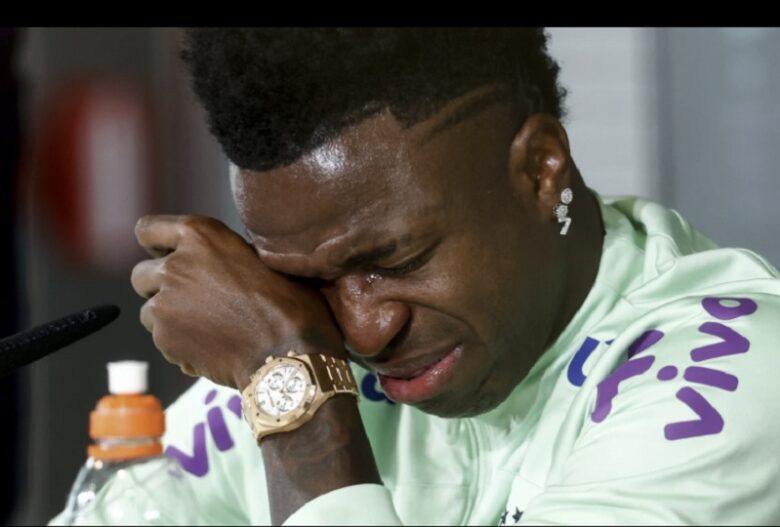Football governing body FIFA has called for a universal standard in managing and penalising racist abuse, a disciplinary offence for all 211 national federations and introducing a crossed hands gesture by victims to alert referees to abuse.
The move comes after extensive consultations with victimised players, including Real Madrid’s Vinícius Júnior.
The crossed hands gesture gained prominence when United States athlete Raven Saunders used it on the medal podium at the Tokyo Olympics in 2021.
Saunders, who won silver in women’s shot put, described it as symbolising the intersection of oppression.
FIFA encourages players to use the gesture, signalling referees to take action by crossing their own hands.
However, Kick It Out, a British fans’ group advocating against racism, expressed skepticism, suggesting that FIFA should prioritise empowering players to leave the pitch when they deem it necessary, rather than introducing new hand gestures.
Soon, teams whose fans or players engage in racial abuse against opponents could face disciplinary actions such as forfeiting games, usually resulting in a 3-0 loss.
These measures are part of a comprehensive plan to address discrimination and will be presented to FIFA member federations during their annual meeting in Bangkok on Friday.
FIFA president Gianni Infantino, who vowed to present a global initiative several months ago, has consulted with Brazilian star Vinicius Junior who has endured repeated abuse from opposing fans in Spanish stadiums.
Vinicius Junior broke down in tears during a March news conference before Spain hosted Brazil in a friendly, shedding light on the persistent abuse he has faced in his adopted home.
In a letter addressed to member federations, FIFA emphasised, “The time has come for football to unite and unequivocally commit as a global community to address the issue of racism in the game.”
FIFA aims to establish a panel of players tasked with monitoring and advising on the global implementation of these actions.
Despite soccer’s decade-long struggle to combat racism in stadiums, previous measures, such as coordinated on-field responses by match officials and post-match disciplinary action, have been insufficient.
Implementing tougher sanctions like match forfeits, points deductions, or disqualification from competitions has proven legally challenging and risked provoking further incidents.
Some soccer leaders, particularly in countries like Italy and Spain, have denied the existence of racism in the sport.
In instances where players reported racial abuse, investigations were sometimes dropped due to lack of evidence beyond the players’ claims.
Moreover, players who attempted to leave the field in response to abuse have been penalised with yellow cards.
FIFA proposes that referees utilise the crossed hands signal to initiate a three-step process when racial or discriminatory abuse occurs during a game: pause play and issue warnings, take teams off the field, and ultimately, abandon the match.
Kick It Out, a long-standing advocate in soccer since 1993, criticised the three-step process, stating that it has “failed to protect players for years,” although it acknowledged FIFA’s intentions as seemingly genuine.
FIFA emphasised the need for the mandatory adoption of the three-step process across all 211 federations, alongside lobbying governments to criminalise racism and promote anti-racism initiatives in schools.
The crossed hands gesture, famously employed by Raven Saunders at the Tokyo Olympics, was previously used by Ethiopian marathon runner Feyisa Lilesa during the 2016 Rio de Janeiro Olympics. Lilesa’s gesture was a protest against government oppression in Ethiopia.
While Saunders faced scrutiny from the International Olympic Committee for her gesture, which also symbolised celebration of diversity, the investigation was halted following her mother’s passing.
YOU MAY ALSO READ: Reddit partners with OpenAI to integrate content into ChatGPT









Got a Question?
Find us on Socials or Contact us and we’ll get back to you as soon as possible.